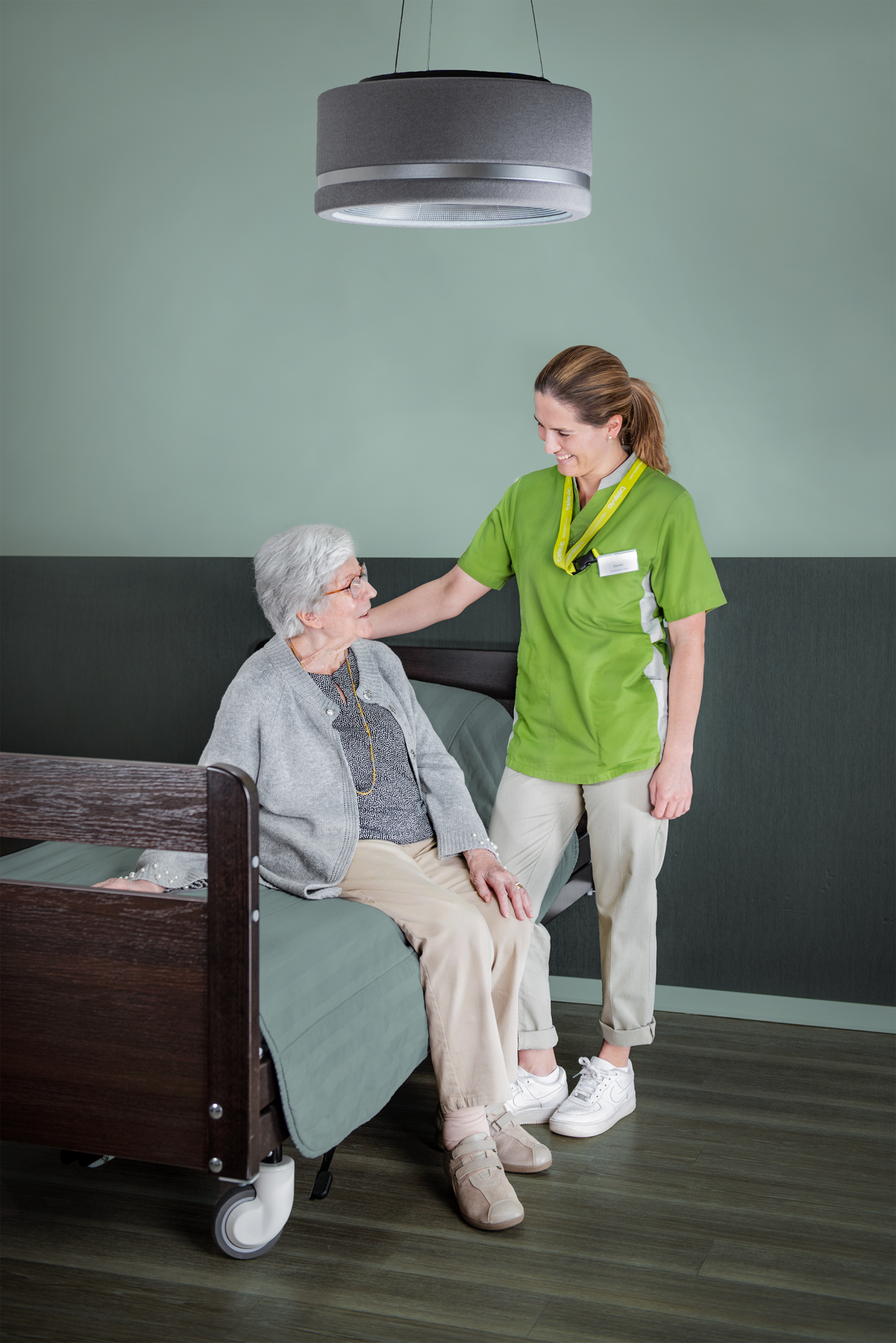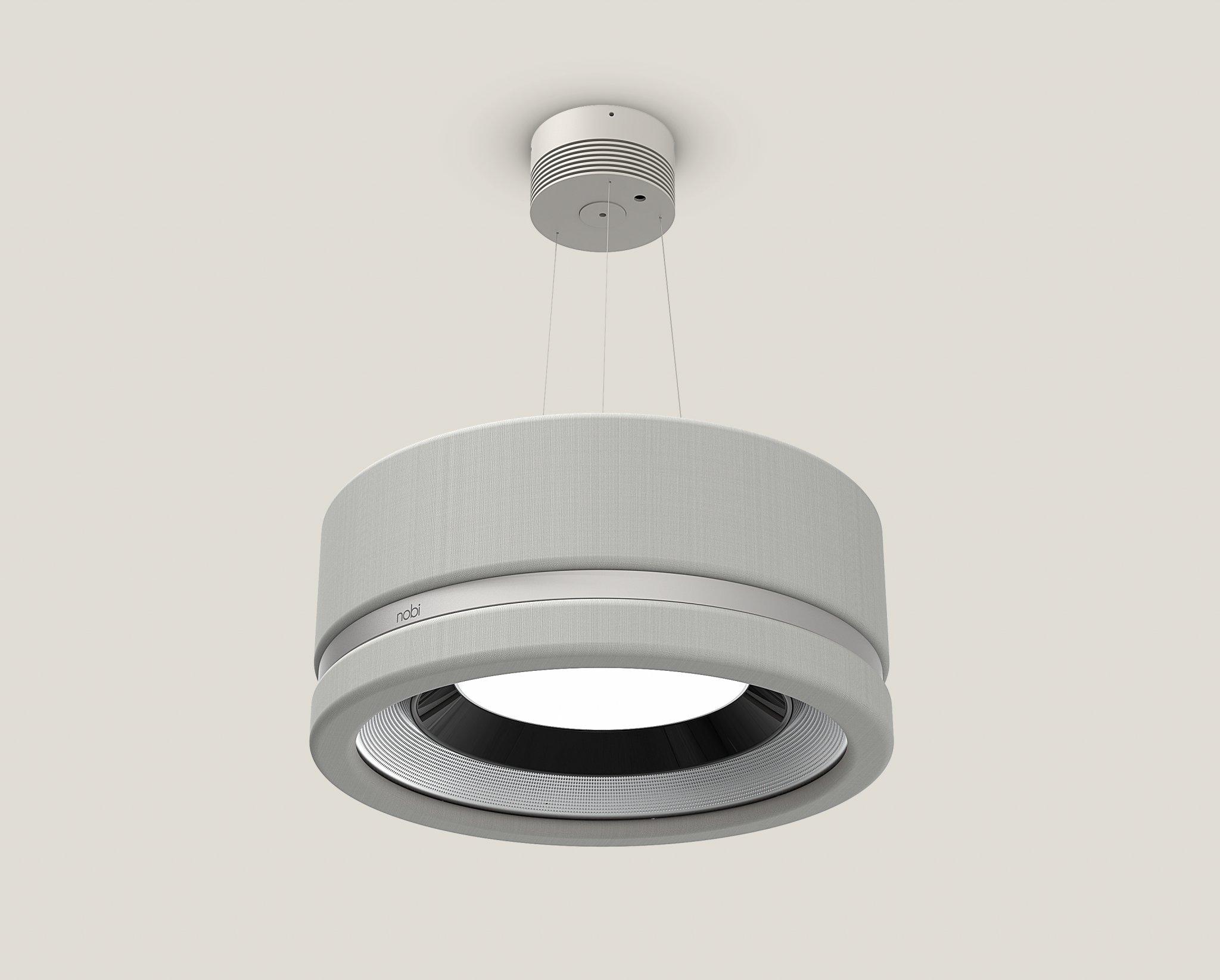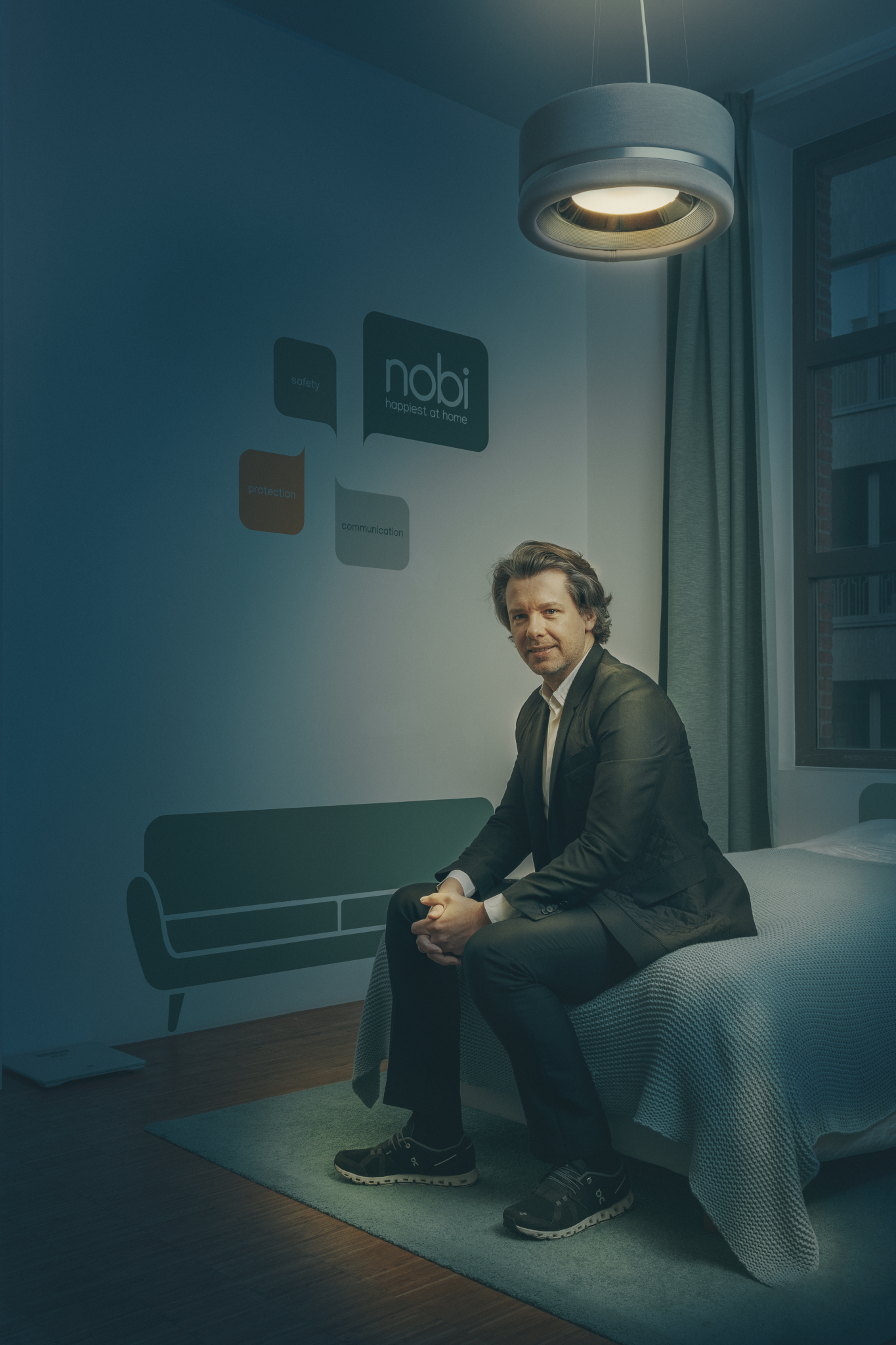Meet Nobi
An Antwerp scale-up known for its AI-driven smart lamps, used for fall detection, fall prevention and lifestyle monitoring. When founding their company, Roeland Pelgrims, Stijn Verrept and Bert De Haes believed that everyone on this planet deserves to grow old in a dignified, safe and happy manner. Pretty ambitious in a world where an increasing number of elderly rely on a decreasing number of caregivers.

” The sector currently has more than 6,000 vacancies that remain unfilled. Agetech will play an increasingly important role in the coming years”.
– Roeland Pelgrims, CEO of Nobi
Therefore, Nobi not only aims to support older adults at home, but already partners with care staff in care homes, health care centres and assisted living facilities. They contribute to even more targeted care for the elderly and relieve busy care workers from repetitive tasks. This way, their limited time can be spent on those tasks that really make a difference to the lives and happiness of older adults. Nobi currently has about 30 employees and operates in Belgium, the Netherlands, the United States, Sweden, Denmark, Finland, Norway, Germany, Austria, Switzerland, Hungary, the UK and Canada.
24/7 guardian angel; immediate assistance after a fall
Nobi wants to provide a solution to one of the leading causes of death in older adults: falls. One in three people over 65 fall at least once a year. Even in assisted living facilities, 50% of residents fall at least once a year. 66% of all the older adults who fall are seriously injured. With the help of artificial intelligence, the Nobi lamp detects when a resident falls and ensures immediate assistance by care staff. That speed is crucial: 50% of the elderly who lay on the floor for longer than one hour die within six months of the fall. The quicker people are helped, the more qualitative years of life can be saved.

Guide in residents’ lives
Nobi not only detects falls, it also prevents them. When older adults sit up in bed at night, Nobi switches on soft lighting. This helps prevent disorientation when waking up and a fall when getting out of bed. Nobi is also a guide in residents’ lives. During the day, the lamp reminds residents of their daily activities and visits. Soon, Nobi will also measure loneliness and encourage family members to come and visit. This can have a major impact on health and happiness. Its artificial intelligence will eventually enable Nobi to detect changes in behaviour, such as when someone suddenly has difficulty walking, displays cognitive decline or becomes depressed. Nobi also helps to monitor the general safety with built-in temperature and air quality measuring instruments.
2022: from innovation to implementation
In 2022 Nobi made the switch from startup innovation to scaleup implementation by installing Nobi’s in several Belgian care homes. The coming months, more installations will follow all over the world. The results of the very first pilot in ‘ALF Gerstjens’ (Aalst) were very promising: in just a few weeks, Nobi detected more than 40 falls in the 15 rooms in which it was tested. The residents were helped within 5 minutes on average. For some residents, this meant the difference between life and death. For others, this speed saved several qualitative years of life.

Responding to the many unreported falls
But there is more. During the pilot, we discovered the number of falls detected was much higher than the officially reported average. Roeland Pelgrims, CEO Nobi:
We are excited to discover that our smart lamp Nobi not only saves as many qualitative years of life as possible, but also helps caregivers to detect fall incidents that would have remained under the radar until today. We know that many older adults who were able to get up independently after a fall do not always report their fall to their caregivers. Either out of shame or because they do not realize that smaller – seemingly innocent – incidents can sometimes have major consequences. With Nobi, caregivers can now provide help more quickly after a fall. They also have a good overview of all falls, including the smaller incidents that would otherwise only have come to light months later when it’s often too late.”













